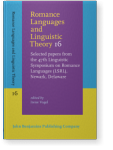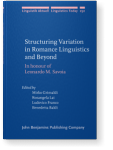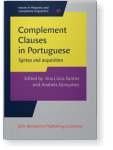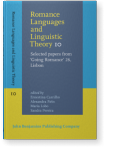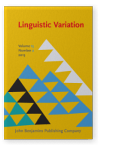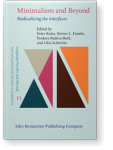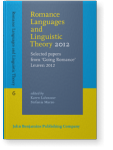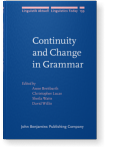Michelle Sheehan
List of John Benjamins publications for which Michelle Sheehan plays a role.
2020 Inflected infinitives in Galician Romance Languages and Linguistic Theory 16: Selected papers from the 47th Linguistic Symposium on Romance Languages (LSRL), Newark, Delaware, Vogel, Irene (ed.), pp. 259–274 | Chapter
This study uses an audio-questionnaire, supplemented by spoken corpus data, to probe the acceptability of Galician inflected infinitives in different syntactic contexts. Our results reveal that inflected infinitives in Galician are acceptable in a different range of contexts than in closely… read more
2018 Chapter 11. Italian faire-infinitives: The special case of volere Structuring Variation in Romance Linguistics and Beyond: In honour of Leonardo M. Savoia, Grimaldi, Mirko, Rosangela Lai, Ludovico Franco and Benedetta Baldi (eds.), pp. 161–175 | Chapter
The first aim of this squib is to show that, under the correct syntactic configuration, volere ‘want’ can be embedded in Italian faire-infinitives (FI), contrary to previous claims. Secondly, we show that want-FIs exhibit peculiar properties: (i) they disallow a full DP causee; (ii) they permit… read more
2018 Control of inflected infinitives in European Portuguese Complement Clauses in Portuguese: Syntax and acquisition, Santos, Ana Lúcia and Anabela Gonçalves (eds.), pp. 29–58 | Chapter
This chapter considers the distribution of inflected infinitives in European Portuguese (EP), with a particular emphasis on (exhaustive and partial) obligatory control (OC) contexts. It is shown, by means of large-scale survey data, that all EP speakers accept both inflected and uninflected… read more
2016 Variation and change in the Romance faire-par causative Romance Languages and Linguistic Theory 10: Selected papers from 'Going Romance' 28, Lisbon, Carrilho, Ernestina, Alexandra Fiéis, Maria Lobo and Sandra Pereira (eds.), pp. 279–304 | Article
This chapter considers the extent to which the faire-par causative (FP) is available in Italian, French, Catalan, and varieties of Spanish and Portuguese. While French and Italian (like some Spanish varieties) permit FP with an optional by-phrase, Catalan permits FP only where the by-phrase is… read more
2015 Review of Coon (2013): Aspects of Split Ergativity Linguistic Variation 15:2, pp. 299–306 | Review
2014 Intensionality, grammar, and the sententialist hypothesis Minimalism and Beyond: Radicalizing the interfaces, Kosta, Peter, Steven L. Franks, Teodora Radeva-Bork and Lilia Schürcks (eds.), pp. 315–349 | Article
Intensionality, the apparent failure of a normal referential interpretation of nominals in embedded positions, is a phenomenon that is pervasive in human language. It has been a foundational problem for semantics, defining a significant part of its agenda. Here we address the explanatory question… read more
2014 Partial Control in Romance Languages: The covert comitative analysis Romance Languages and Linguistic Theory 2012: Selected papers from 'Going Romance' Leuven 2012, Lahousse, Karen and Stefania Marzo (eds.), pp. 181–198 | Article
This article considers the availability of partial Control in European Portuguese, French, Spanish and Italian and argues that many apparent examples of partial Control actually involve exhaustive control with a covert comitative, along the lines proposed by Boeckx, Hornstein & Nunes (2010) for… read more
2010 Impossible changes and impossible borrowings: The Final-over-Final Constraint Continuity and Change in Grammar, Breitbarth, Anne, Christopher Lucas, Sheila Watts and David Willis (eds.), pp. 35–60 | Article
This chapter examines the predictions of Biberauer, Holmberg & Roberts’s (2007, 2008) Final-over-Final Constraint/FOFC for grammatical change and borrowing. As a putatively invariant syntactic principle, FOFC excludes the synchronic possibility of head-final phrases dominating categorially alike… read more
2010 Extraposition and antisymmetry Linguistic Variation Yearbook 2010, van Craenenbroeck, Jeroen (ed.), pp. 201–251 | Article
‘Extraposition’ is a cover term for two distinct phenomena (cf. also Fox & Nissenbaum 1999; Kiss 2005). The first, which I assume to be derived by parallel construal (following Koster 2000), targets only RCs, blocks reconstruction of the extraposed constituent to the base position of the source,… read more
